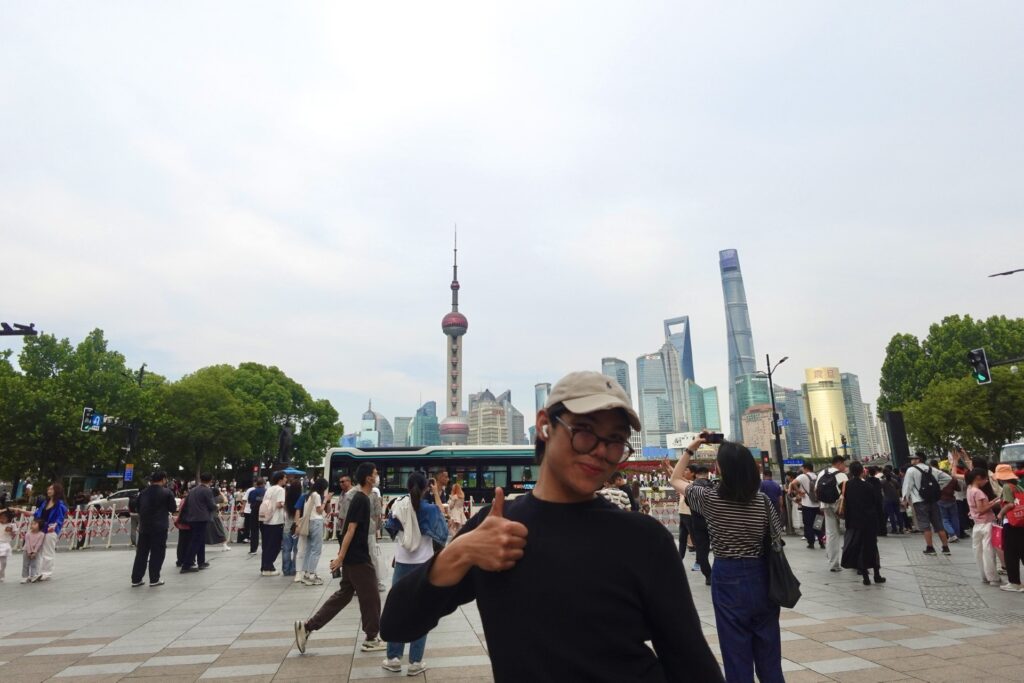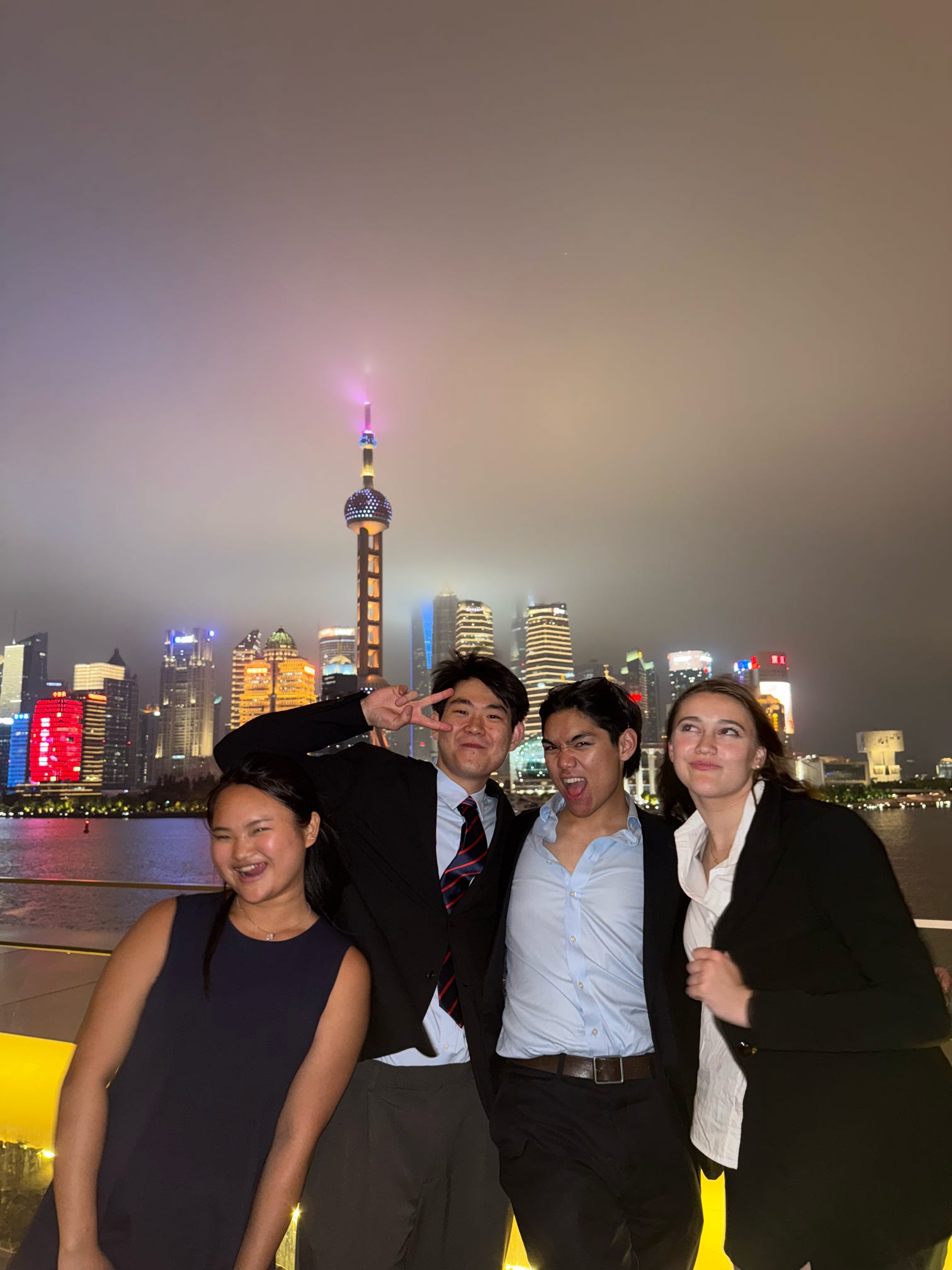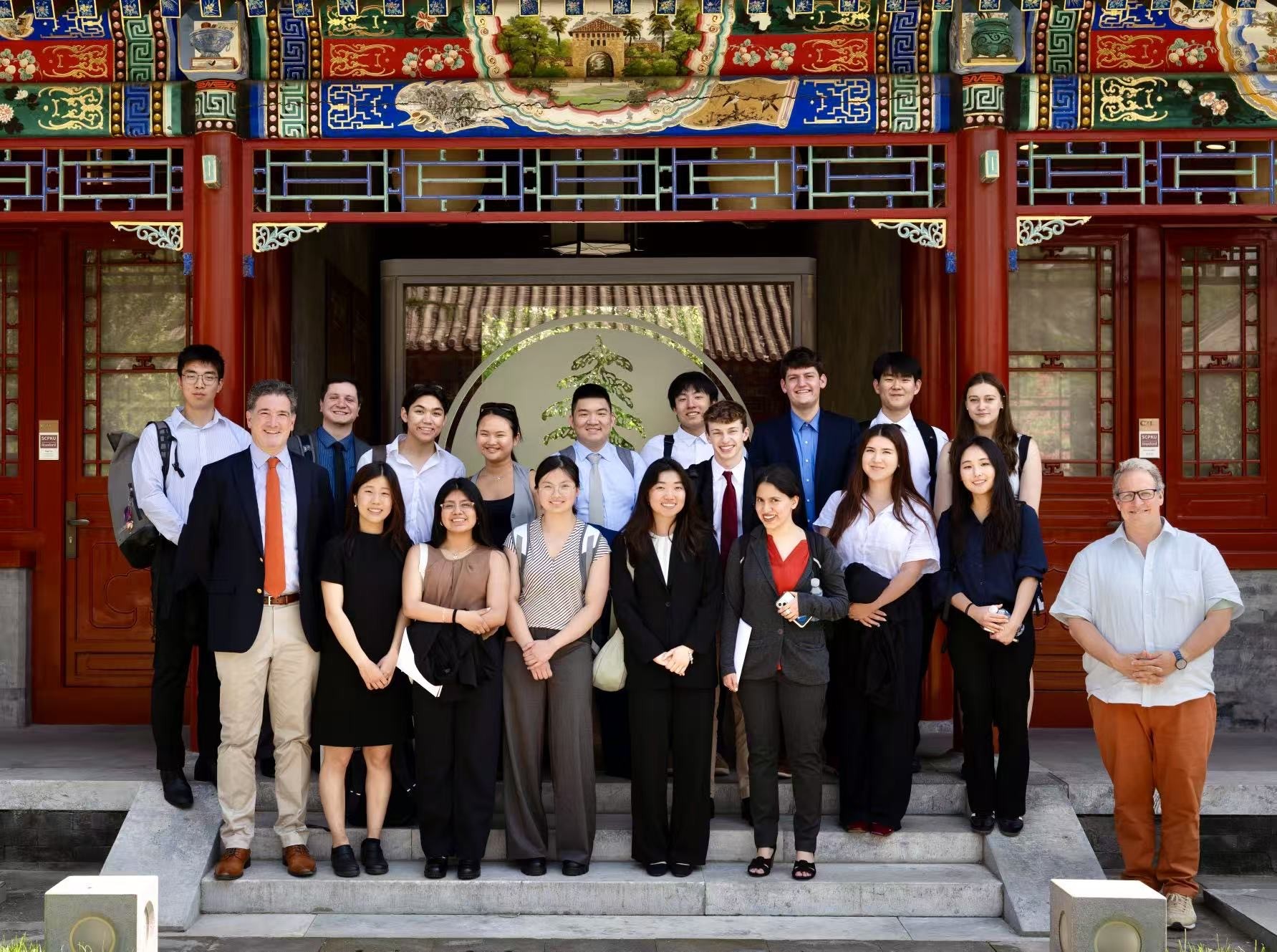
Ysaach Romac Habon
Wharton ’26
Finance
PGS: Policy Task Force on U.S.–China Relations
Contact
Ask Me About…
My Penn Abroad experience through the PGS, Policy Task Force on U.S.–China Relations, was unique because it reversed the typical study-abroad path. Instead of learning a language while abroad, I advanced my Mandarin beforehand in anticipation of the trip. Taking Chinese II that semester gave me structure, but the upcoming program pushed me to go further. I practiced day-to-day, colloquial language with Chinese friends so I could engage more naturally once there.
I also tailored my study plan to the activities I knew were ahead, especially our student discussion at 北大 (Bei Da). Preparing for that setting meant learning to introduce myself clearly and ask more personal questions, deepening relationships beyond shared academic interests. For example, I practiced scenario-based dialogues such as ordering food, getting directions, and checking in at venues to make these interactions as seamless as possible.
This preparation turned my abroad experience from a brief visit into a meaningful exchange. It also showed me how aligning a language course with specific, upcoming interactions can accelerate learning. As a Penn Abroad Ambassador, I now recommend that students structure other coursework around the conversations and experiences they expect to have abroad.
A PGS should not be treated as a one-off class, as I once thought, but as a course that deepens your interests and integrates with other studies.
My Experience Abroad
I initially saw my PGS as a personal experience rather than something connected to my academic or professional goals, given that I was a business student. The only clear tie was to my Chinese class, since I wanted to navigate Beijing confidently in May.
However, the program evolved into much more than a language application. It exposed me not only to a new country and culture, but also to professional pathways I had never considered. In Beijing, I met a former Huntsman student working in China, whose career demonstrated how language skills paired with regional expertise can open doors beyond traditional finance. I also sought advice from my professor, whose insights into international economics and policy encouraged me to think about roles integrating finance with global strategy.
Meeting them, alongside our structured activities in China, changed how I thought about my own professional goals. It reminded me that technical skills alone are not enough and that understanding the broader environment where business operates is essential. While finance remains one possible path, my PGS made me more open to opportunities involving trade, policy, and international engagement.
Other Highlights
- Walking the Great Wall and visiting the Forbidden City
- Alumni dinner on the Bund in Shanghai
- Turbulent airplane and bus rides that turned classmates into close friends



